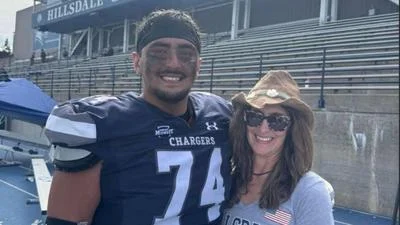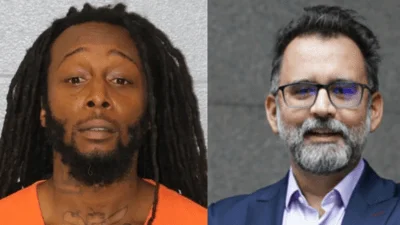Steven Isoye, State Board of Education Chairperson | LinkedIn
Steven Isoye, State Board of Education Chairperson | LinkedIn
Illinois State Board of Education Education Policy Planning Committee of the Whole met Jan. 14.
Here are the minutes provided by the committee:
Committee Chair Dr. Donna Leak brought the meeting to order at 3:45 p.m. Roll call was taken, and a quorum was present, with six members attending in person. Dr. James Anderson attended via video conference. Roger Eddy and Dr. Anna Grassellino were absent. State Superintendent Dr. Tony Sanders also was in attendance.
Chair Steven Isoye stated that members would consider the participation of Dr. Anderson via video conference due to a personal illness. In accordance with the bylaws of the Illinois State Board of Education, the Board may permit a member to participate by other means if they cannot physically attend a meeting because of a personal illness.
Laura Gonzalez moved that the State Board of Education permit the participation of Dr. Anderson via video conference. Dr. Isoye seconded the motion, and it passed by a unanimous roll call vote.
Members Present
Committee Chair Dr. Donna Leak
Dr. Steven Isoye
Dr. Christine Benson
Dr. James Anderson (virtual)
Dr. Sherly Chavarria
Laura Gonzalez
Dr. Patricia Nugent
Members Absent
Roger Eddy
Dr. Anna Grassellino
Staff Present
Dr. Tony Sanders, State Superintendent
Jo Ireland, Board Services Coordinator
Kim Clarke, Executive Assistant to the State Superintendent
Isabel Schoeman, Special Assistant to the State Superintendent
Kristen Kennedy, Chief Legal Officer
Dr. Kimako Patterson, Chief of Staff
Dr. Matt Seaton, Chief Financial Officer
Tassi Maton, Chief Internal Audit Officer
Melissa Oller, Chief Operating Officer
Edobor Efam, Chief Information Officer
Dr. Jason Helfer, Chief Education Officer – Instruction (virtual)
Jennifer Saba, Chief Education Officer – Operations (virtual)
Irma Snopek, Chief Policy and Communications Officer
Ann Whalen, Chief Advisor to Early Childhood Transition
Miguel Calderon, Chief Operating Officer
Dr. Tiffany Burnett, Executive Director of Safe and Healthy Climate (virtual)
Rae Clementz, Executive Director of Data, Accountability and Assessment (virtual)
Samantha White, Co-Director of Government Relations
Marci Johnson, Director of CTE
Emily Fox, Director of Educator Effectiveness
Michael Gum, Director of School Business Services
Tom Bazan, Director of Budget and Financial Management
Dana Stoerger, Director of Legislative Affairs
Dr. Ronda Dawson, Executive Director of Teaching and Learning
2. Public Participation
There was no public participation.
3. Approval of Minutes: Dec. 17, 2024
Dr. Anderson moved that the Education Policy Planning Committee of the Whole hereby approve the Dec. 17, 2024, meeting minutes. Dr. Benson seconded the motion, and it passed by a unanimous roll call vote.
4. Superintendent’s Consent Agenda – Jan. 15, 2025
There were no questions regarding the consent agenda.
5. Upcoming February Board Action
A. Approval of Cut Scores for the Social Science-History and Early Childhood Education Licensure Content Tests
Director of Educator Effectiveness Emily Fox discussed this item.
Dr. Nugent asked if Ms. Fox’s team had calculated predicted pass rates for these new exams. Ms. Fox said no.
Dr. Nugent then asked how this item connects to the recently passed legislation allowing teacher licensing content exam subareas to be graded separately. Ms. Fox clarified that the legislation passed last summer permitted ISBE to write rules to allow subareas of content exams to be taken and scored independently. ISBE has written those rules, which are currently available for public comment. She added that ISBE anticipates implementing these rules first with the elementary education test in the summer of 2026, but the tests discussed in this item will be enacted under the old structure that does not allow for separate grading of subareas. Dr. Nugent asked if down the line there will be subareas on these two content exams for which the new rules will apply. Ms. Fox answered that ISBE has determined in conversation with the agency’s testing vendor that the exams for elementary and early childhood education are prime candidates for separate subarea grading, while the sciences and social sciences are more difficult. She said that the agency plans to still explore separate subarea grading for these tests in the future.
Ms. Gonzalez noted a discrepancy in the demographics of individuals who pass these content exams versus those who do not. She asked if the subgroups that are less likely to pass were included on the panel that determined the cut scores and wondered what else the team had done to address these discrepancies in pass rates. Ms. Fox responded that her team members made an effort to recruit a diverse panel but they sometimes encounter challenges in finding enough people to serve on the panels. She continued by saying that ISBE’s new contract with testing vendor Pearson includes some added measures that her department hopes will help to address the discrepancies, including the provision of free testing for educators who came within a certain window of passing on their first attempt and free practice exams for all content areas. Ms. Gonzalez asked if panel members also undergo training in addition to receiving informational materials on the content exams. Ms. Fox confirmed that upfront training for all panel members is a standard part of the test design process.
Chair Leak asked if there has been consideration of underlying biases existing in ISBE’s tests that could contribute to pass rate discrepancies. Ms. Fox said a bias review panel is part of the overall test design process, and the new contract with Pearson contains a stipulation that a bias test for each content area exam must be conducted every two years.
Dr. Chavarria asked for confirmation that this measure will approve the cut scores for these two content exams but this is solely one step in a complete redesign of both exams. Ms. Fox confirmed that this is the final step in long process of redesigning both tests. Dr. Chavarria double-checked that these will not be the same tests taken previously with new cut scores, and Ms. Fox said that is correct and these are brand new tests.
Ms. Gonzalez asked if the Board will be able to access some version of the new tests to see what they look like. Ms. Fox said that is possible.
B. Approval for Publication – Part 100 (Requirements for Accounting, Budgeting, Financial Reporting, and Auditing) Reporting Requirements & Cleanup
Director of School Business Services Michael Gum discussed this item.
Dr. Nugent asked if there had been consideration of when in relation to the completion of an audit would districts be required to submit the proposed quarterly data requests and Corrective Action Plans (CAPs). She also asked how ISBE will hold districts accountable to this new plan. Mr. Gum answered that a CAP will be required if indicated on the auditor’s questionnaire and CAP submission will be required at the time the district certifies the audit; in other words, an audit will not be considered complete until the district has submitted its CAP. Dr. Nugent asked what the usual time period for a signed audit submission is. Mr. Gum answered the official due dates are to Regional Offices of Education on Oct. 15 and to ISBE on Nov. 15 with a built-in extension to Dec. 15. In reality, the shortage of school district auditors means it is not uncommon to receive very late audits. Chair Leak emphasized there is a severe shortage of auditors. Mr. Gum continued that he was unsure how often ISBE would request data submission from districts, and this is the first step in a long process to get to that final reporting system. He anticipates that minimally the agency would require quarterly submissions to align with grant expenditure reports. Dr. Seaton added that this action is a component of the agency’s work with Illuminative Strategies, which is working on creating a system that would combine different forms of financial data reporting for the agency to extrapolate from when needed, dependent on codes being used appropriately. Dr. Nugent asked if reporting quarterly would be a significant amount of extra work for the districts compared to reporting once per year, and Chair Leak said it would require effort. Chair Leak added that there would need to be consideration of many logistical factors and suggested collaborating with the Illinois Association of School Business Officials and engaging stakeholders in the process. Dr. Seaton said his team has engaged the Illinois Association of School Administrators in early conversations, and a system already exists for site-based expenditure reports that can ideally be expanded to tackle more projects.
C. Approval of Spring 2025 Waiver Report
Director of Legislative Affairs Dana Stoerger discussed this item.
Chair Leak asked if the non-resident tuition relates to staff members or to true non-residents. Mr. Stoerger said that term relates to a variety of scenarios and his team did not encompass every non-resident in the change it made.
6. New Business: Items for the Next Agenda
Chair Leak shared that South Cook’s superintendent requested that ISBE work with the Illinois Association of School Boards (IASB) or other statewide organizations to create consistent guidelines regarding artificial intelligence (AI). Dr. Sanders said that Chief Education Officer — Instruction Dr. Jason Helfer and his team are currently working on an AI presentation, and a legislative report panel has formed that will present to the Board at an upcoming meeting. He added that IASB has begun working on draft AI policies. Dr. Leak requested that the AI presentation be an agenda item for the February meeting, and the Board can continue to check in going forward. Ms. Gonzalez expressed appreciation for this suggestion.
Dr. Chavarria asked in anticipation of the upcoming federal transition that an open agenda item be created related to any changes in policies or conditions.
7. Next Meeting: Feb. 19, 2025
Chair Leak reminded Board members that the next meeting will take place on a Wednesday.
8. Adjourn
Dr. Nugent made a motion to adjourn. Dr. Isoye seconded the motion, and it passed by a unanimous roll call vote. Chair Leak adjourned the Education Policy Planning Committee of the Whole meeting at 4:12 p.m.
https://www.isbe.net/Documents_Board_Meetings/20250114-Minutes-EPP.pdf






 Alerts Sign-up
Alerts Sign-up